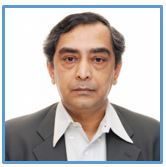There has been a continual debate on which programming language/s to learn, to use. As the latest TIOBE Programming Community Index for August 2021 indicates – C (13%), Python (12%), C++ (7%), Java (10%), and C#(5%) together control nearly half the programming activities worldwide. Further, C Programming Language Family (C, C++, C#, Objective C etc.) dominate more than 25% of activities. Hence, learning C++ is important as one learns about the entire family, about Object-Oriented Programming and gets a solid foundation to also migrate to Java and Python as needed.
C++ is the mother of most general purpose of languages. It is multi-paradigm encompassing procedural, object-oriented, generic, and even functional programming. C++ has primarily been the systems language till C++03 which punches efficiency of the code with the efficacy of OOP. Then, why should I learn it if my primary focus is on applications? This is where the recent updates of C++, namely, C++11 and several later offer excellent depths and flexibility for C++ that no language can match. These extensions attempt to alleviate some of the long-standing shortcomings for C++ including porous resource management, error-prone pointer handling, expression semantics, and better readability.
The present course builds up on the knowledge of C programming and basic data structure (array, list, stack, queue etc.) to create a strong familiarity with C++98 / C++03. Besides the constructs, syntax and semantics of C++ (over C), we also focus on various idioms of C++ and attempt to go to depth with every C++ feature justifying and illustrating them with several examples and assignment problems. On the way, we illustrate various OOP concepts.
The course also covers important advances in C++11 and later released features.
PRE-REQUISITE: Programming & Data Structure (mandatory), Programming in C (optional). Design and Analysis of Algorithms (optional).
INDUSRTY SUPPORT: Programming in C++ is so fundamental that all companies dealing with systems as well as application development (including web, IoT, embedded systems) have a need for the same. These include – Microsoft, Samsung, Xerox, Yahoo, Oracle, Google, IBM, TCS, Infosys, Amazon, Flipkart, etc. This course would help industry developers to be up-to-date with the advances in C++ so that they can remain at the state-of-the-art.
INTENDED AUDIENCE: None.

DOWNLOAD APP
FOLLOW US